Cork footballers must learn harsh lessons from the league
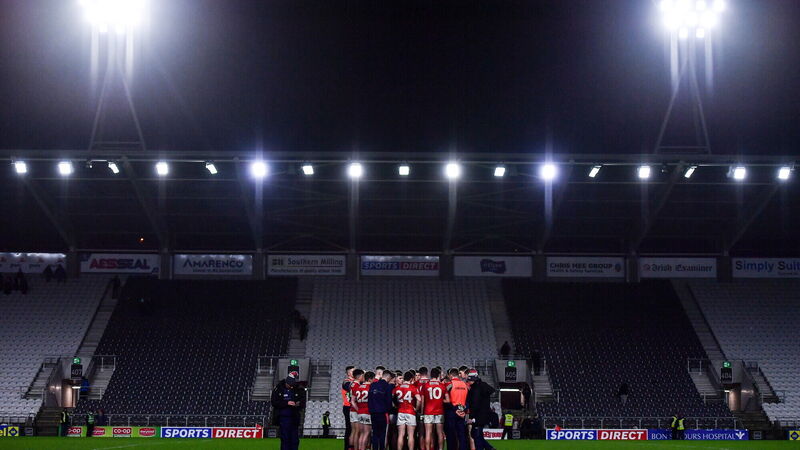
The Cork footballers are their draw with Clare recently. Picture: Ben McShane/Sportsfile
ON A wet and squally night in Páirc Uí Chaoimh two weeks ago, Clare looked to have put enough daylight between themselves and Cork at just the right time.
There was only 12 minutes remaining when Podge Collins was hauled down for a penalty, which Keelan Sexton buried to put Clare three points ahead.
Cork refused to panic.
They had reduced the margin to one with just five minutes remaining before Clare goalkeeper Stephen Ryan and Darren O’Neill got their calls mixed up and an undercooked free from Brian Hurley squirmed over the line.
Cork should have been able to see the game out from that position, but Clare replied with two excellent scores from substitutes Emmett McMahon and Daniel Walsh.
Mark Cronin had an opportunity to win the game for Cork with a free from outside 45 metres but the ball dropped short.
Was it a point dropped or a point secured? Every point in this division is precious, so Keith Ricken was more inclined — as he always is — to see the glass half full more than half empty.
Ricken always tries to purport his assessments — publicly anyway — in a positive light.
When he spoke to this newspaper’s reporter Mark Woods after the game, Ricken mentioned the buzz at Cork’s gym and video session just two nights after the six-point opening day defeat to Roscommon.
“We’ve had setbacks with injuries, but the lads have been great,” said Ricken after the following week’s draw against Clare.
“We’re young and we were naïve in the mistakes we made against a Clare side that was well-drilled and well-organised.”
That was an accurate summation because there were stages throughout that match, especially in the first half, when Clare showed all their streetwise smarts to stay in the contest during a period which Cork largely dominated.
Cork were dominating on breaks, especially off kick-outs.
They were well set up defensively, but Cork were finding it difficult to nail their greater proportion of scoring chances into the breeze, only having a 46% conversion in that first half.
Clare only had two more shots than Cork in that half, but the biggest difference was the comparative conversion rates from dead-balls, with Clare at 100% and Cork at just 50%.
Kicking into the breeze was an obvious factor, but the dead-ball figure at the end of the game was absolutely decisive, with Clare remaining at 100% and Cork dropping to 40%.
That Cork stat is even further clouded with Hurley’s goal from a free coming off a defensive error.
Cork were able to compensate for that deficit with a 57% conversion rate from play compared to just 41% for Clare.
Both sides had 26 shots and an almost identical attack efficiency rate and scoring rate from turnovers.
Despite struggling on kick-outs for most of the first half, Clare managed to mine nearly half their scores from their own restarts.
Clare raised their energy and the tempo of their play towards the end of the second quarter, while they also began to attack the Cork kick-out far more aggressively to stop Cork building from that platform.
On the other hand, Cork will be happy with their own kick-out numbers on such a difficult night for football, securing 75% of Micheal Martin’s restarts.
As well as winning eight of Martin’s long kick-outs, Cork won six of Clare’s long kick-outs.
PRESS
Cork will have to do well on their own kick-outs against Derry on Sunday because Derry press really hard and aggressively on the opposition kick-out, seeking to force turnovers high up the pitch.
Going to Owenbeg will be a difficult task for Ricken’s side, not just with it being such a long away trip, but because Derry are so hard to beat; they currently have the best defensive record in the country, having only conceded a combined total of 0-13 against Down and Offaly.
With Rory Gallagher in charge, who was Jim McGuinness’ right-hand man when Donegal won the All-Ireland in 2012, Derry are really well defensively organised.
They’re not ultra-defensive though; they’re keeping the scores down by being very proactive, especially on the opposition kick-out, and dominating on their own kick-out. Odhrán Lynch is a good goalkeeper with an excellent kick-out.
Derry have won their two games comfortably – by margins of seven and 12 points respectively – by dominating the ball.
They have good pace and firepower in their attack, but Derry have also a real penetrative threat from deep, especially through the excellent Ciarán McFaul.
McFaul has been around for a long time now and this Derry side has a lot of hardened experience.
After delivering one of the best performances of last year’s championship when narrowly losing to Donegal in Ballybofey, Gallagher is pushing hard for promotion to Division 1 with this group; every one of the team which started against Donegal last July have already featured in Derry’s opening two league games.
Derry will expect to win. With high-flying Galway, who share top spot in Division 2 with Derry and Roscommon, coming to Páirc Uí Chaoimh next Saturday, Cork always knew that getting enough points on the board early in the campaign was going to be a struggle.
There are still plenty of games left yet to accumulate enough points to stave off the threat of relegation because promotion already looks beyond Cork.
That point Cork took against Clare was precious. But two points would have been gold considering the challenges coming hard and fast down the tracks.
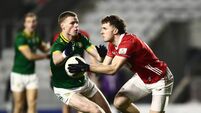
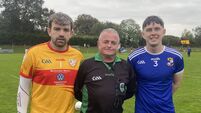
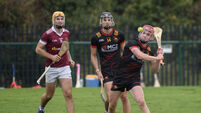
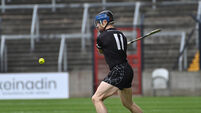





 App?
App?







